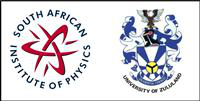Speaker
Apply to be<br> considered for a student <br> award (Yes / No)?
No
Level for award<br> (Hons, MSc, <br> PhD)?
PhD
Would you like to <br> submit a short paper <br> for the Conference <br> Proceedings (Yes / No)?
Yes
Abstract content <br> (Max 300 words)
There has been much concern about the university physics pass rates over the years. South Africa’s economic prosperity depends to a large extent on the availability of sufficient highly educated and highly trained personnel in science, mathematics and technology (SMT). However, the status quo remains as the country still suffers from an acute shortage of trained personnel in these fields notwithstanding difficulties experienced by students coming from disadvantaged backgrounds. The huge gap between school and post-school education has placed universities under considerable pressure to in particular adapt undergraduate physics curricula in order to provide adequate mathematics foundation required to navigate the physics curricula. As a consequence of the dilemma, the duration of the three-year undergraduate physics program at the University of Johannesburg (UJ) was elevated to four years in order to make provision for additional tuition. This study examines the impact of physics foundation program on students’ academic performance on their first encounter with physics mainstream curriculum at UJ by providing a comparative analysis of the performance of students from foundation program and their counterparts in the mainstream curriculum. The results of the investigation in this regard seem to suggest that some students from the foundation program appeared to have gained a somewhat adequate knowledge, understanding and confidence. In addition, the envisaged impact of foundation program on the confidence of students in coping with the mainstream module has also been acknowledged by the academic personnel.

